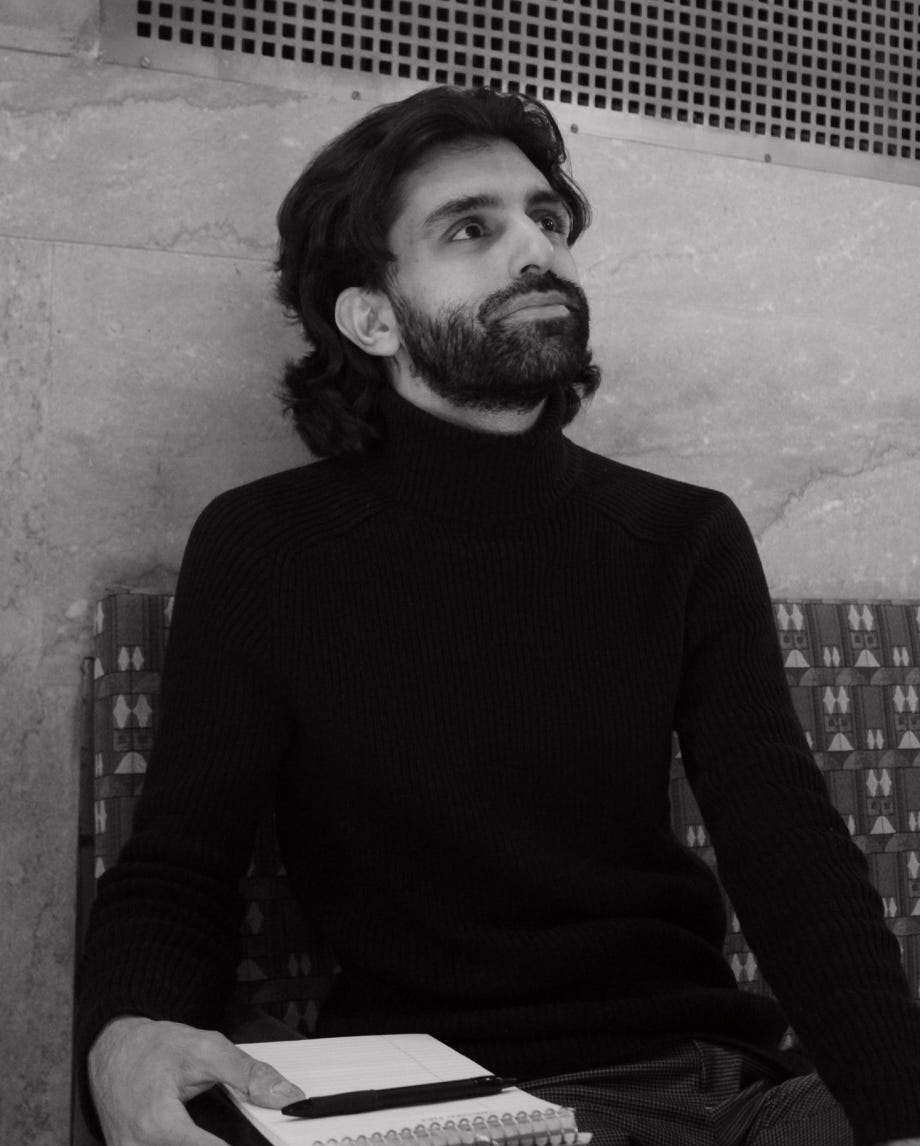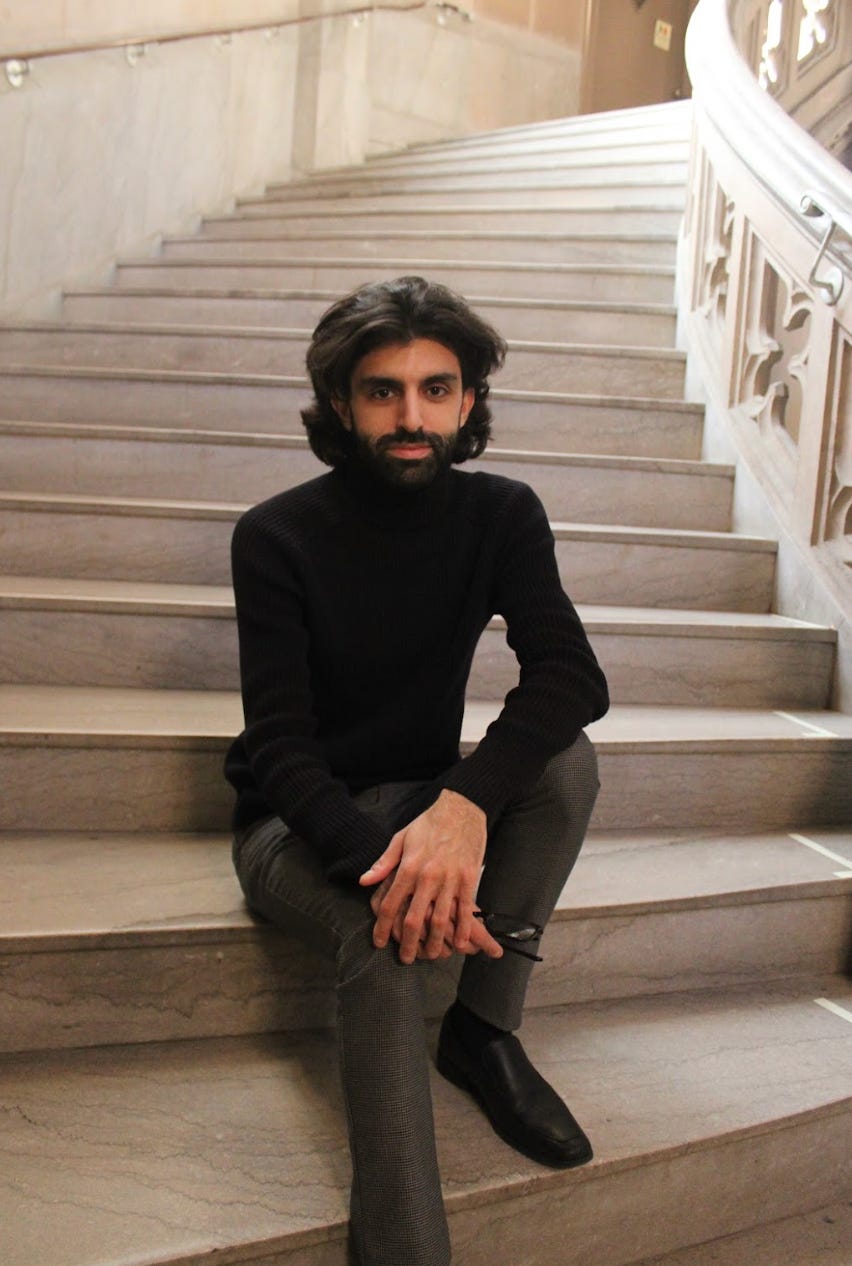You’re Going to End Up Alone
Identity, ideology, and the pursuit of belonging
A single text ended a friendship. We were texting about one of my social media posts, where I raised concerns about the efficacy and safety of gender-affirming care for minors, questioning what I saw as premature and overly confident claims about its medical necessity and benefits. In response, my former friend didn’t engage with my argument—he simply texted me, “You’re going to end up alone.”
Because he and I are both gay men, his charged reaction was not a surprise to me. He could not fathom that I would dare voice such criticism—a criticism that, to him, represented a shorthand expression of contempt for transgender people. So, he implicitly labeled me as transphobic.
To him, my dissent wasn’t just controversial—it was a betrayal of the LGBTQ+ community.
Whether he realized it or not, he did what many who are ideologically rigid do so effectively—use shame as a tool to assert control. His warning was clear: By questioning gender-affirming care, I had jeopardized my social and romantic viability. To him, my dissent was a social transgression that made me undesirable in an already limited dating pool. He wasn’t the only one—several other gay friends have distanced themselves from me over the years because, I suspect, of my political stances.
Research shows that our social well-being thrives on relational and instrumental value—the extent to which we feel valued in relationships and seen as contributing to collective goals.
Group belonging provides safety and connection but can also pressure individuals toward compliance over authenticity, particularly when ideological conformity is required for acceptance. The fear of challenging a group’s prevailing beliefs can turn social connections into a survival game rather than a space for genuine relationships.

For a long time, I believed I had to choose between solitude and group acceptance, outsourcing my autonomy to “the collective” and embracing the prevailing beliefs of the LGBTQ+ community without much scrutiny. As in many groups, the search for belonging within gay culture can sometimes blur the line between authentic identity and a fragmented sense of self.
Ideally, our identity forms through a mix of experiences that shape us as individuals. However, when our sense of self exclusively depends on external validation, it ceases to exist when it no longer aligns with our group’s identity, and the external validation disappears. When we choose conformity, strict adherence to groupthink can become so ingrained in us that it shapes how we see ourselves and the world. Over time, interactions with others start to feel forced, driven by a need to correct those who don’t see us as we see ourselves.
We are left with a rigid, black-and-white worldview, where encountering a different perspective feels like a personal attack rather than just an alternative experience. We start seeing outside viewpoints not only as the source of our struggles but also as proof of our victimhood.
To cope, we might seek solidarity in identity-based social groups, but psychological research shows that these spaces can sometimes reinforce past wounds instead of fostering healing. Some find comfort in these communities, but others risk adopting a self-defeating mindset: When our sense of belonging is built on shared struggle, stepping away can feel like a betrayal to the collective, making it harder to break cycles of resentment even when belonging to the community no longer promotes our well-being.
This, more or less, was my story. Well into my twenties, I subscribed to the idea that heteronormativity was inherently oppressive and that masculinity exists only to assert dominance. I even repudiated my own masculinity as “part of the problem.”
On the political side of things, I spent much of this time firmly aligned with progressive causes. I voted for Democrats, attended Bernie Sanders rallies, and participated in various activist movements. I was, in many ways, the archetypal poster child of progressivism: I blamed corporations for every misfortune in my life, joined efforts to remove my high school’s “Indians” mascot, and cried when Donald Trump won the 2016 election. I voiced anti-racist sentiments on social media and admonished family members for not signaling solidarity with Black Lives Matter.
Looking back, I can soberingly acknowledge that despite my good intentions, I was often insufferable. Still, these actions, however performative, gave me a sense of belonging. Yet deep down, I felt an underlying dissonance.
Shortly after George Floyd’s death in May 2020, I began encountering evidence that directly challenged my progressive beliefs. One wake-up call came from a 2020 Gallup poll where 61 percent of black Americans said they wanted police funding to remain the same, while 20 percent favored increasing it. This finding didn’t fit with the dominant social justice narrative, which stated that defunding the police would protect black Americans against a racist police force.
Further inquiry led me to studies like Harvard economist Roland Fryer’s 2017 analysis on police use of force, which found that while police disproportionately used non-lethal force against blacks and Hispanics, there was, in fact, no racial disparity in officer-involved shootings after controlling for other factors. Slowly, I realized that many of the narratives I had clung to were built on shaky ground.
However, my ideological shift was most influenced by the issue of “trusting the science” during and after the pandemic.
Now, I acknowledge that science does not exist to alleviate our deepest fears or align with public sentiment. I recognize that wearing masks can mitigate pathogen transmission and that vaccines are undeniably effective at preventing severe disease. But however ethical the public health response to a global pandemic may seem, a fair amount of dissent and skepticism are needed to maintain trust in science.
When our government and trusted institutions began issuing censorious and authoritarian measures like mask and vaccine mandates, I began to question whether “trusting the science” was a pretext for an ideological agenda. For example, I found it perplexing that scientists and other educated people were so quick to dismiss the COVID lab leak theory as a conspiracy and deride those who raised concerns about vaccine safety.
But in fact, concerns about vaccine side effects such as myocarditis and blood clots were not baseless—they were documented and acknowledged by health agencies, even if they were statistically rare. Yet, the left often minimised or labeled these concerns as misinformation. I further doubted the sincerity of those championing “the science” as they increasingly attempted to silence the dissent. Today, multiple U.S. agencies consider the lab leak theory more plausible than a natural origin-based theory.
As my skepticism grew, I began to examine other issues critically, especially transgender medicine. Based on the widespread belief that gender-affirming care is a well-studied “evidence-based solution,” I assumed that medical interventions such as hormone therapy or surgery were logical steps for children experiencing significant distress due to a mismatch between their gender identity and biological sex.
However, after more investigation, I found that the research lacked rigor. Large-scale randomized controlled trials (RCTs)—the gold standard in medical research—did not exist for transgender medical interventions, and there is limited systematic, long-term data on health outcomes. A 2020 systematic review by the UK National Institute for Health and Care Excellence (NICE) found that the evidence supporting puberty blockers and cross-sex hormones in adolescents was of very low quality.
This gap represents not just an oversight but also an ethical challenge. Institutions such as the English National Health Service (NHS) have pointed out that conducting RCTs in this context would require randomly sorting gender-dysphoric youth into placebo groups or denying them treatment altogether, an option deemed untenable given the perceived immediate need for intervention.
While pharmacological interventions such as puberty blockers are approved for managing precocious puberty, their off-label use for gender dysphoria raises concerns about bone density, fertility, and long-term psychological health—risks that remain poorly understood. Recent legal challenges and reviews underscore the need for more robust research to clarify the safety of these drugs.

Plus, the biological and psychological underpinnings of gender dysphoria remain poorly understood, which makes it challenging to justify medical interventions that extend beyond addressing immediate psychological distress. Data indicates that this distress is often rooted in underlying psychiatric or neurodevelopmental conditions.
The empirical landscape becomes far murkier when considering outcomes over extended periods, and researchers have noted that the data is inconsistent with the confidence many on the left have in these treatments. As a result, countries such as Sweden have recently revised their guidelines to prioritize psychotherapy over hormonal interventions, limiting hormonal treatments to research settings.
The real problem is not whether others agree or disagree with my arguments but how my dissenting view became a litmus test for group belonging. In retrospect, I did not challenge my original orthodox views because I wanted to maintain my sense of social belonging.
My friend’s warning that I’d end up alone wasn’t just a personal attack—it reflected a broader tension at the heart of the social justice worldview held by progressives. Their worldview relies on moral conviction and collective political action to address social injustice. To challenge a call to action is to reject the problem; to reject the problem is to dismiss the people it affects. To my friend and those like him, my dissent wasn’t just disagreement—it was an attack on the very people he believed his ideas protected. Absent intellectual honesty, a dissenting view is necessarily a moral failing.
This particular approach to enforcing the group’s rules leads to an especially troubling effect on respect towards conservatives by liberals. In their book Respect and Loathing in American Democracy, political scientists Elizabeth Theiss-Morse and Jeff Spinner-Halev define and measure two types of respect. Civic respect is engaging with people who hold different perspectives in a good-faith, generous manner. Recognition respect is acknowledging respect for others simply because they are human beings and, therefore, inherently equal to us.
They find empirical evidence of a liberal respect paradox: While liberals champion recognition respect for marginalized groups, they are less likely to extend it to conservatives—an asymmetry not present with conservatives. As a result, liberals often moralize dissent rather than engage with it. What emerges is a form of social gatekeeping that reinforces group cohesion at the expense of intellectual openness. This gatekeeping is especially present within identity-based communities, like the LGBTQ+ community, where a shared demographic characteristic reinforces the impulse for ideological conformity.
This impulse to enforce ideological compliance extends beyond personal relationships—it also shapes broader political dynamics. The progressive left tends to essentialize people into their identity groups, categorizing many minorities as “oppressed” and everyone else as "oppressors.” The problem with this framing is that it assumes that identifying as “oppressed” automatically translates into an inevitable political allegiance to progressivism.
But this assumption often backfires. At an October Trump rally at Madison Square Garden, comedian Tony Hinchcliffe made a humorless joke calling Puerto Rico a “floating island of garbage.” The left assumed this comment would alienate Latino voters so close to the election. However, Trump improved his standing with Latino voters by 14 points.
This miscalculation reflects a broader failure within the progressive left to recognize that identity does not dictate ideology. Just as I was expected to align with progressive stances on gender-affirming care simply because I am gay, many on the left assume that all minorities will fall in line with their political narratives. Many do out of fear of being castigated from their identity groups like I was by my friend.
Conflating identity with ideology erases individual agency and breeds resentment among those who feel boxed in by ideological expectations. Diversity of thought does exist within identity groups. When the progressive left fails to recognize that people are more than their demographics, they fail to acknowledge individuals as autonomous, sentient, and complex beings.
I started my political reckoning by asking myself: What is lonelier—standing firm in my curiosity and ambition for truth or conforming to a group identity that erodes personal agency?
Through the discomfort of questioning and reassessing my values, my politics have shifted away from progressivism and closer to the political center. This process has clarified who I am, what I stand for, and how I value myself within identity groups.
Now that I am no longer desperate for group acceptance, I simply show up as I am, trusting that authenticity will align me with what and who truly belongs in my life. To anyone hesitant to embrace this clarity, I encourage you to take the leap. You might discover others you can genuinely connect with, free from the fear of punishment for independent thought. More importantly, you’ll come to know and understand yourself much better. In this space of authenticity and agency, you will never end up alone.
Mr. Rispo is a senior at the School of General Studies majoring in psychology. Follow him on X @anthony_rispo.






What a beautifully written article Anthony. I am probably an atypical commenter here. I am a 71 year old conservative woman married to a man. But during the last 8 or so years, my business partner, friends, children and other relatives have decided that their “politics” were more important. More than classifying what I feel to my political or religious beliefs, I feel it is just plain common sense. I have no problem with who someone “loves”. I have a problem with exposing children to sex and making life altering changes to them. I questioned the Covid vaccine which I ended up getting so I could see my new grandson. Why was a criminal like George Floyd being lauded as some kind of hero? Why are so many young people anti semantic? Stand your ground. We all are entitled to our inalienable rights and in the end, you will not be alone. Those are not “your people”.
This post cut me like a knife. I’m a gay moderate/leans conservative in Austin and I’ve recently been distancing myself (or found myself distanced by) from some of my more progressive friends. I used to be part of a regular dinner group but left after 1) one member sent me several heated messages over a NYTimes op-ed I shared 2) another member said I don’t care about gay Christians when I questioned the wisdom of a church hosting a drag show and 3) another member said I was engaging in censorship when I raised concerns about a church board member posting things like “Political violence is the most American of all values” after the first attempted Trump assassination.